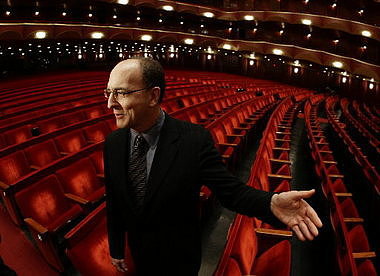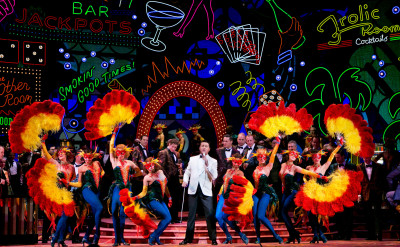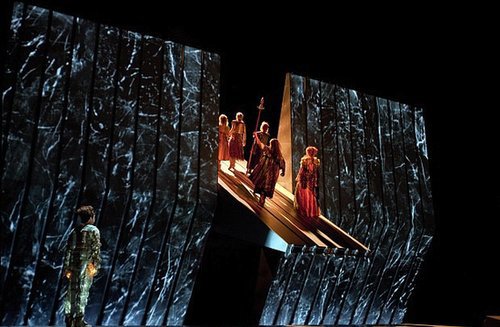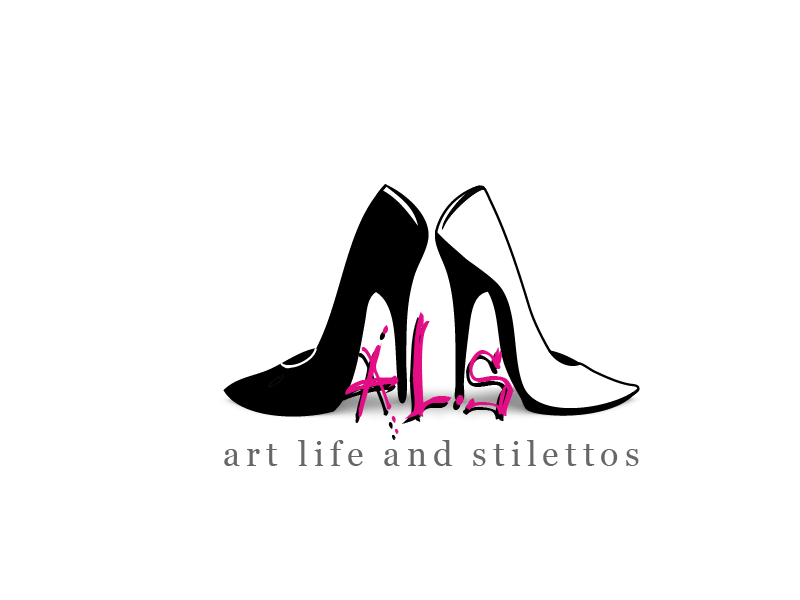There has been a lot of discussion about the financial situation at The Metropolitan Opera in recent months. The media has been bombarded with remarks from Metropolitan Opera General Manager, Peter Gelb, citing the demise of opera, its imminent death and the aging audiences as the reason the opera house is now falling into debt and supposedly facing bankruptcy.  From reading the various articles and interviews with Gelb, one begins to get a sense of being distracted from other important factors, thanks to the foresight of the Met’s most prominent, and influential character. Gelb has been publicizing the financial problems, and exposing average salaries of the orchestra and chorus members, making the case that their wages are compromising the company as one of their greatest expenditures. This action has given Gelb some fuel to talk union pay cuts while garnering sympathy.
From reading the various articles and interviews with Gelb, one begins to get a sense of being distracted from other important factors, thanks to the foresight of the Met’s most prominent, and influential character. Gelb has been publicizing the financial problems, and exposing average salaries of the orchestra and chorus members, making the case that their wages are compromising the company as one of their greatest expenditures. This action has given Gelb some fuel to talk union pay cuts while garnering sympathy.
When, instead, the focus shifts towards the management of the company, the story starts to fill out in a way that few outside the Met’s internal community could explain. The Met Opera Orchestra, and Local 802 AFM, the union representing the musicians, have released a public statement, which clearly explains The Metropolitan Opera’s current financial situation, arguing that the budget problems and deficit has less to do with the cost of paying musicians wages, and more to do with the failing artistic vision and mismanagement of Peter Gelb.
I have available here the full statement, with financial figures and box office numbers. Please take to time to read the document, and reflect on the media campaign Gelb has recently launched. The document emphasizes the manner in which the budget has been handled over the last seven years, under Gelb’s management. There has been an increaseof spending in all areas, including musician and management wages, but most notable is the huge increase in spending on media and new productions. According to the budget documents acquired by the union,


“This figures vary dramatically from the information the media has received, claiming, “When the Met’s finances are in order — payroll for 3,400 full-time, part-time and seasonal employees eats up 75 percent of the Met’s $330 million annual operating budget — Gelb’s most important job is artistic director.”
It is yet to be determined where the truth lies. Considering how little increase there has been to the production costs over the last seven years, and the large increase in other new spending, it appears that the Met’s ideal budget is lowered at the cost of the singers, instrumentalists, seamstresses, stage management, actors, lighting and tech crew, ushers, box office employees, maintenance staff, essentially the people that make the shows happen, rather than publicity and spectacle. Is this a healthy compromise? I suppose it all comes down to what draws audiences to the theatre.
“The Met is seeking to cut its labor costs to deal with a number of serious challenges: box-office revenues have been declining; costs have been rising; and although the company has bridged that gap with record fund-raising, it has also drawn heavily on its endowment. The Met’s endowment was valued at $253 million at the end of last year — less than its operating expenses that year, which were $327 million.”
Much of the criticism has been surrounding the increased spending on new, modern revivals of repertoire productions, and the recent emphasis on the visual aspects of the performance, rather than on the comprehensive artistic quality of the productions. Over the last few years, visually spectacular shows and the Met’s “Live in HD” experience have become central elements. Some say Gelb is pandering to new audiences, to those who wouldn’t normally attend a live performance at the theatre, while ignoring the company’s loyal patrons and opera-loving supporters.
“It’s hard to defend myself without sounding defensive,” Gelb said. “What’s difficult and frustrating for me is that so many critics seem to have so little appreciation for what we’re trying to do theatrically. I think there is a lack of understanding about our effort to make these productions appealing to an audience that may or may not know much about opera.” NYTimes


Critics have also begun to rail against the noticeable decline in vocal quality, often at the mercy of more realistic acting or an improved visual presence.
In a post on The Times’s Web site, Joe Pearce said he wondered whether Gelb understood the difference “between his true opera-loving audience and the happening-seekers he would convert” and dismissed as nonsense the idea that new meaning could be found in great works of art “through semi-Eurotrash reimaginings by third-rate theatrical minds.” The bigger issue, he told me — bigger than any one opera-company general manager — is the decline of vocal artistry. “Singers are no longer being trained to act with their voices like they used to do,” he said. “Now they act with their bodies.” NYTimes
Gelb’s vision seems to be based on a false ideal, that opera is, or should be a central form of entertainment in today’s society. Surely many lovers of opera and classical music would agree that it seems unrealistic that classical music could outperform or match the popularity some other more commercial forms of entertainment, so why even try to compete? It is an idea that seems to contradict the tradition. Many people attend operatic productions precisely for the tradition it represents, not because it is a short-form of entertainment. Gelb goes on to contradict himself when he cites tenor Luciano Pavarotti, as central in the attraction of past audiences. He essentially points out how much of an influence the singer in the production has on ticket sales, rather than flashy sets and marketing. Gelb claims that


“We’ve embarked on a strategy to make the Met more accessible, including last season’s abridged “Magic Flute,” for families. The audience is shrinking. I fault our times and short-form entertainment. The days of Pavarotti standing center stage and selling out are gone. Then opera still had a foothold in popular culture. It’s a niche now.” Bloomberg
I question why Gelb feels opera is inaccessible. I would think that a lack of education on the art form, and perhaps performances in foreign languages would create more of a barrier to new audiences than the theatre’s status as “niche”.
An example of the hyperawareness of the Met’s media image can be understood through Gelb’s presence in the preparations for “The Met: Live in HD”
“After checking overnight box-office totals and other automated reports, Gelb typically uses the predawn hours to telephone agents, artists and opera impresarios in Europe and Japan. But this morning in late October, only months after his most difficult season — a season of scathing reviews that indicted him for accenting spectacle over cohesive drama and various other felonies having to do with his taste, temperament and sensitivity to criticism — he has decided to overhaul a script. Any underling could handle the job of rewriting remarks for the soprano Sondra Radvanovsky when she introduces the Met’s “Live in HD” broadcast of “Otello” in two days, but Gelb is an unabashed micromanager, and the Met’s “Live in HD” broadcasts didn’t become his capital achievement because he let somebody else make the coffee.” NYTimes
Sources for this article:
Met Orchestra Musicians Local 802 AFM Presentation to the Board of Directors of The Metropolitan Opera Association Announcement and Full Report
New York’s Metropolitan Opera Opens Its Budget Curtain



[…] Opera, New York City Opera, Gotham Opera, Hamilton Opera and near misses at San Diego and The Metropolitan Opera. Here is the full statement from the […]
[…] it is one that is gaining significant traction amongst the recent bought of theatre closures and scandals. Hopscotch Opera is another experimental production, it’s a “mobile opera” that is […]
[…] much freedom in terms of artistic vision, as the private sector still does have a major influence. I’ve talked about some of these issues […]